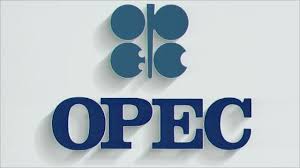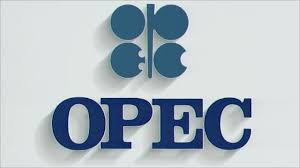
While Iran’s arch-rival Saudi Arabia promised not to flood the market and sought to mend fences within the OPEC, Tehran insisted on steeply raising its own production which resulted in a failed OPEC meeting where the oil producers had gathered to agree on a clear oil-output strategy.
There have been several instances when tensions had risen between the Sunni-led kingdom of Saudi Arabia and the Shi'ite Islamic Republic of Iran at OPEC meetings. The organization’s meeting called to decide on a formal output target for the first time in years in December 2015 fell through as the two countries fell short of agreeing a consensus.
However in the latest meeting, tensions between Tehran and Riyadh were not as high as in previous occasions aided by Iranian Energy Minister Bijan Zanganeh keeping his criticism of Riyadh to an unusual minimum and the new Saudi Energy Minister Khalid al-Falih showing that Riyadh wanted to be more conciliatory in matter of fixing production limits.
Nigeria's Mohammed Barkindo was appointed as the new secretary-general of OPEC unanimously after years of friction over the issue which is being seen as a rare compromise between the members.
In an attempt to repair OPEC’s waning importance, Saudi Arabia and its Gulf allies had tried to propose OPEC set a new collective ceiling. However no new policy or ceiling could be decided at the meeting amid resistance from Iran.
However, Saudi Arabia tried to soothe market fears about the OPEC member and especially Riyadh enhancing production due to the set back at the meeting. SSaudi Arabia is already pumping near record highs and there are fear that it might raise production further to punish rivals and gain additional market share.
"We will be very gentle in our approach and make sure we don't shock the market in any way," Falih told reporters.
"There is no reason to expect that Saudi Arabia is going to go on a flooding campaign," Falih said while replying to questions about whether Saudi Arabia could accelerate production.
As political foes Riyadh and Tehran fight proxy wars in Syria and Yemen, the market has grown increasingly used to OPEC clashes over the past two years.
Aimed stabilizing oil markets, in April in the Qatari capital of Doha, Saudi Arabia had effectively scuppered plans for a global production freeze. Only if Iran agreed to freeze output, Saudi Arabi has said then that it would join the deal which would also have involved non-OPEC Russia.
Tehran should be allowed to raise production to levels seen before the imposition of now-ended Western sanctions over Iran's nuclear program, argues Iran. Tehran wanted the debate to focus on individual-country production quotas, effectively abandoned by OPEC years ago and would not support any new collective output ceiling, Zanganeh said.
"Without country quotas, OPEC cannot control anything," Zanganeh told the media. Based on historic output levels, 14.5 percent of OPEC's overall production should be accorded to Iran, he insisted.
According to Tehran's estimates, it should be given a quota of 4.7 million bpd - well above its current output of 3.8 million as the OPEC is pumping 32.5 million barrels per day (bpd).
(Source:www.reuters.com)
There have been several instances when tensions had risen between the Sunni-led kingdom of Saudi Arabia and the Shi'ite Islamic Republic of Iran at OPEC meetings. The organization’s meeting called to decide on a formal output target for the first time in years in December 2015 fell through as the two countries fell short of agreeing a consensus.
However in the latest meeting, tensions between Tehran and Riyadh were not as high as in previous occasions aided by Iranian Energy Minister Bijan Zanganeh keeping his criticism of Riyadh to an unusual minimum and the new Saudi Energy Minister Khalid al-Falih showing that Riyadh wanted to be more conciliatory in matter of fixing production limits.
Nigeria's Mohammed Barkindo was appointed as the new secretary-general of OPEC unanimously after years of friction over the issue which is being seen as a rare compromise between the members.
In an attempt to repair OPEC’s waning importance, Saudi Arabia and its Gulf allies had tried to propose OPEC set a new collective ceiling. However no new policy or ceiling could be decided at the meeting amid resistance from Iran.
However, Saudi Arabia tried to soothe market fears about the OPEC member and especially Riyadh enhancing production due to the set back at the meeting. SSaudi Arabia is already pumping near record highs and there are fear that it might raise production further to punish rivals and gain additional market share.
"We will be very gentle in our approach and make sure we don't shock the market in any way," Falih told reporters.
"There is no reason to expect that Saudi Arabia is going to go on a flooding campaign," Falih said while replying to questions about whether Saudi Arabia could accelerate production.
As political foes Riyadh and Tehran fight proxy wars in Syria and Yemen, the market has grown increasingly used to OPEC clashes over the past two years.
Aimed stabilizing oil markets, in April in the Qatari capital of Doha, Saudi Arabia had effectively scuppered plans for a global production freeze. Only if Iran agreed to freeze output, Saudi Arabi has said then that it would join the deal which would also have involved non-OPEC Russia.
Tehran should be allowed to raise production to levels seen before the imposition of now-ended Western sanctions over Iran's nuclear program, argues Iran. Tehran wanted the debate to focus on individual-country production quotas, effectively abandoned by OPEC years ago and would not support any new collective output ceiling, Zanganeh said.
"Without country quotas, OPEC cannot control anything," Zanganeh told the media. Based on historic output levels, 14.5 percent of OPEC's overall production should be accorded to Iran, he insisted.
According to Tehran's estimates, it should be given a quota of 4.7 million bpd - well above its current output of 3.8 million as the OPEC is pumping 32.5 million barrels per day (bpd).
(Source:www.reuters.com)





